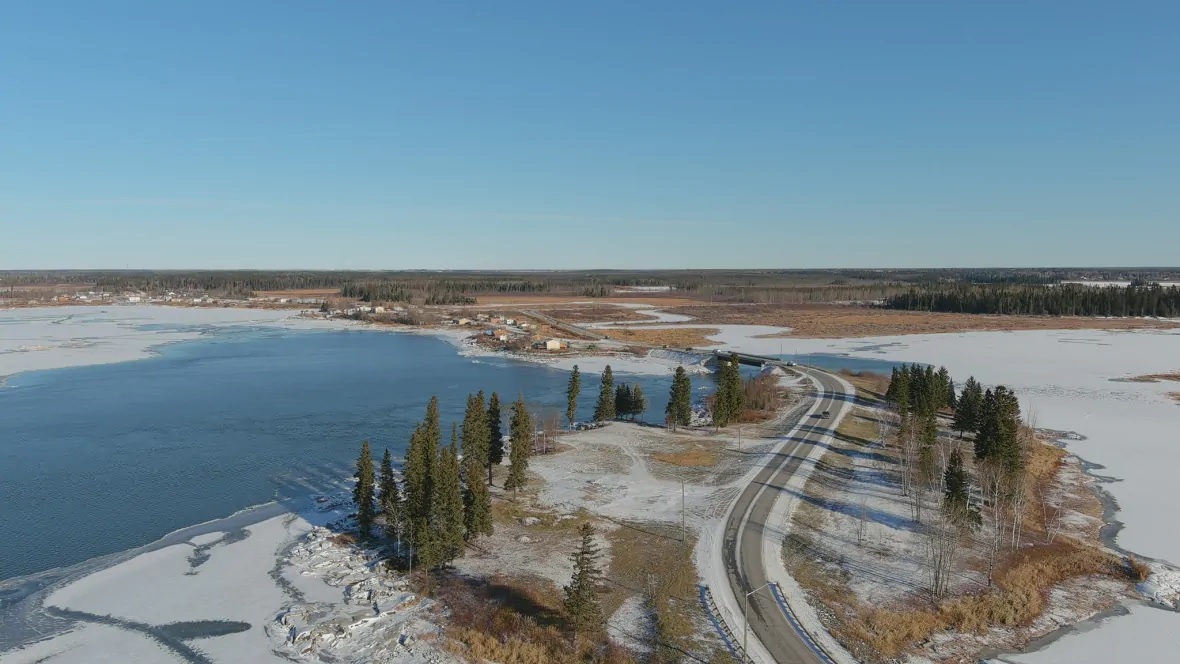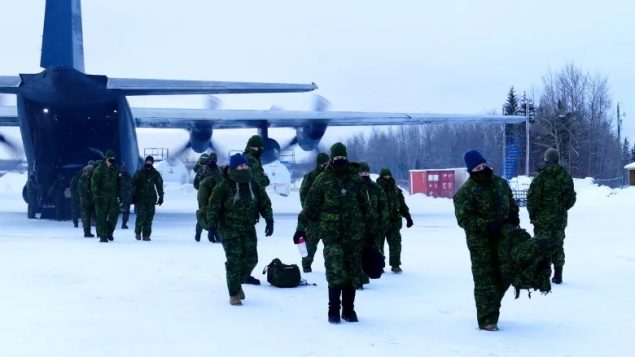Members of two First Nations in northern Manitoba are breathing a little easier after tests revealed they don’t have the U.K. variant in their communities, as many feared last weekend.
After the Pauingassi First Nation, located 280 kilometres northeast of Winnipeg, reported seven probable cases of the U.K. variant last Saturday, test samples were sent to the National Microbiology Lab in Winnipeg.
The samples shared the same genetic marker as the variant, but further sequencing found the cases were different.

Pauingassi First Nation is pictured in a 2017 file photo. People in the community are breathing a bit easier after seven possible cases of the U.K. variant turned out to be false-positives. (CBC)
“While we are not out of the woods yet, so to speak, it is a great relief that we are not in fact dealing with the B.1.1.7 UK variant of concern. We will continue to work with our health counterparts and ensure that we keep our Nation as safe as possible,” Chief Roddy Owens, said in a statement.
Pauingassi locked down on Feb. 1 after 118 of the nearly 500 people on reserve tested positive for COVID-19.
Meanwhile, after days of worrying, there was some good news for the Pimicikamak Cree Nation, also known also known as Cross Lake First Nation, which is located about 530 kilometres north of Winnipeg.

People in Pimicikamak, located about 530 km north of Winnipeg, are hoping the miitary can arrive soon. (Submitted by Kyle Scribe)
A presumptive case of the U.K variant turned out to be a false-positive.
But COVID-19 cases are mounting.
As of Thursday, 204 active cases, including 87 children, and 146 households in the community were affected, according to a news release.
Of the community’s active cases, 161 people were in alternate isolation accommodations and 64 other people, including some close contacts, were waiting to get into that type of accommodation.
Four people were in hospital with COVID-19 and three were in intensive care.
The CBC’s Jill Coubrough reports that the First Nation, which has a population of roughly 8,100, is running out of room for people who need to isolate and frontline workers are stretched thin, but military help may be on the way.
WATCH// Jill Coubrough reports on the COVID-19 case crisis at Pimicikamak First Nation:
The federal government, Chief David Monias told Coubrough, had agreed to his request earlier this week to send military personnel to the First Nation to assess how it might be able to provide support.
The contingent was due to arrive today.
“People are sick, people are getting exhausted,” Monias said. “We need that reprieve.”
With files from CBC News (Jill Coubrough, Ian Froese, Rachel Bergen, Cameron MacLean, Marianne Klowak)







For reasons beyond our control, and for an undetermined period of time, our comment section is now closed. However, our social networks remain open to your contributions.